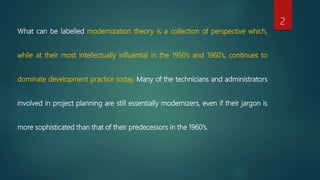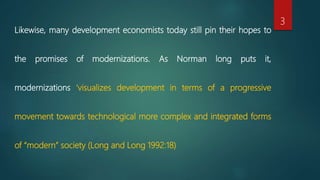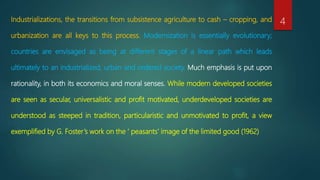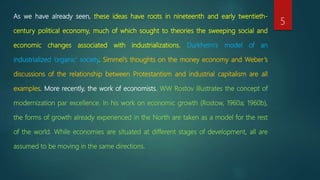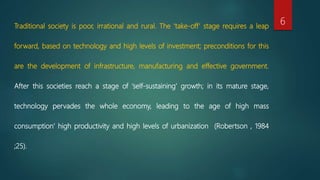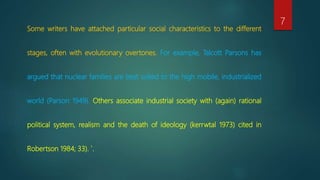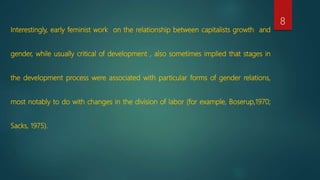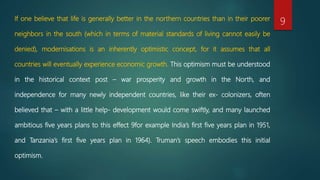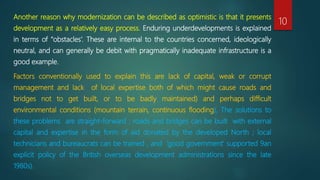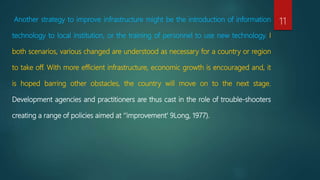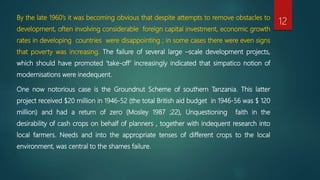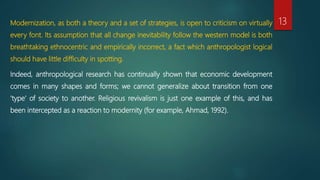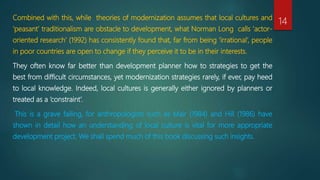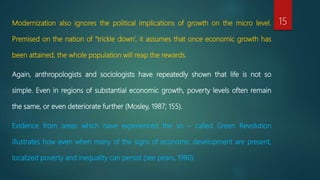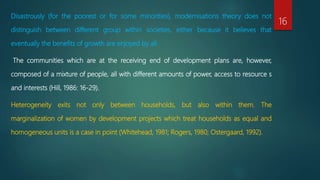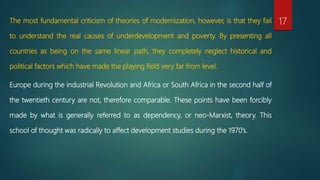Modernization theory views development as a progressive movement towards more modern societies characterized by industrialization, urbanization, and other social and economic changes associated with developed nations. It assumes countries are at different stages on a linear path that will ultimately lead to industrialized and ordered societies. However, modernization theory has been criticized for being overly simplistic and ethnocentric by ignoring local contexts, cultures, and the political and historical factors that influence development. It also fails to account for inequality and poverty that can persist despite economic growth. While initially optimistic, modernization theory's inability to adequately explain development outcomes led to the rise of dependency and neo-Marxist theories in the 1970s that offered alternative perspectives.

